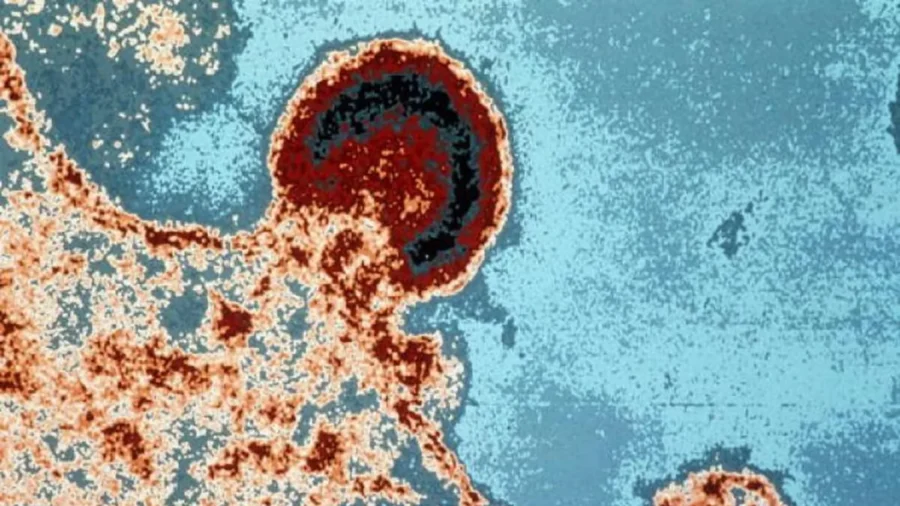Nearly 450 patients at a hospital in Massachusetts might have been exposed to hepatitis B, hepatitis C, and HIV due to poor administration of IV medications, said the hospital in a statement.
Salem Hospital told news outlets this week that patients undergoing an endoscopy—including colonoscopies, laparoscopies, and bronchoscopies—at the hospital may have been exposed to the pathogens over the past several years. The patients, it added, were exposed when IV medications were given “in a manner not consistent with our best practice.”
“The infections we are testing for are hepatitis B, hepatitis C, and HIV, which are standard tests for a potential exposure of this kind,” the hospital told People in a statement. “A small portion of our endoscopy patients, nearly 450 patients, were potentially impacted over a period of roughly two years.”
The chance that patients were infected is “extremely small” and no patients reported infections as of this week, a hospital spokesman told People magazine.
“After a comprehensive review, including feedback from public health officials at the Massachusetts Department of Public Health, we have determined that the infection risk to patients from this event is extremely small,” the hospital stated, reported WHDH-TV.
“The safety of our patients is our highest priority and we have undertaken multiple corrective actions in response to this event,” it added.
The Massachusetts Department of Public Health told ABC News and CNN that it investigated the hospital and worked with an onsite team to deal with the situation. The agency “advised the hospital to notify all impacted patients in writing about the potential exposure to bloodborne pathogens and to offer free-of-charge follow-up care, including testing,” the state’s health department said.
A spokesperson for the health agency separately told news outlets that it also advised the hospital “to offer free-of-charge follow-up care, including testing.” The hospital confirmed it will offer tests for hepatitis and HIV, noting “they are common blood-borne pathogenic viruses that often don’t produce symptomatic infection.”
Salem Hospital also offered an apology to those who were potentially exposed. “We sincerely apologize to those who have been impacted and we remain committed to delivering high-quality, compassionate health care to our community,” it said in a statement.
A spokesperson for Mass Brigham, which owns Salem Hospital, also offered an apology to those who were impacted, saying that it has a “commitment to patient safety and high-quality healthcare.”
Symptoms
According to the U.S. Centers for Disease Control and Prevention (CDC), hepatitis B and C can be treated with antiviral medications, with hepatitis C having a 95 percent cure rate. However, other health officials say that there is no cure for hepatitis B, and chronic sufferers have an elevated risk of developing liver failure or cirrhosis, which can permanently scar the liver.
Symptoms of both hepatitis B and C include jaundice—or a yellowing of the skin or eyes—as well as dark urine, abdominal pain, joint pain, fever, nausea and vomiting, a loss of appetite, and fatigue.
Also known as human immunodeficiency virus, HIV is not curable but can be managed or treated with antiretroviral drugs, which reduce the viral load in a person’s body, according to the National Institutes of Health. HIV can lead to AIDS, or acquired immunodeficiency syndrome, or the most advanced stage of the disease when the body’s immune system is significantly damaged due to the virus.
The CDC recently warned that people who have HIV have a higher chance of being re-infected with COVID-19, compared with those who do not have HIV.
Other Incidents
In 2018, about 3,000 patients at HealthPlus Surgery Center in New Jersey were potentially exposed to hepatitis B, hepatitis C, and HIV, according to reports at the time. Later, the New Jersey Department of Health revealed that workers at the center were not following the right sterilization protocols and that medical instruments were not being properly cleaned.
About 10 years before that, an outbreak of hepatitis C was linked to an endoscopy center in Nevada, the CDC has said. It attributed the outbreak to “unsafe injection practices.”
Earlier this year, a hospital in Indiana notified hundreds of patients that they were potentially exposed to tuberculosis, a potentially deadly bacterial infection that has killed a significant number of people throughout human history after a staff member tested positive.
Clark Memorial Health in Jeffersonville said in August that it sent out hundreds of letters after an employee tested positive for the bacteria. Two people later tested positive for the bacteria, according to reports.
From The Epoch Times


